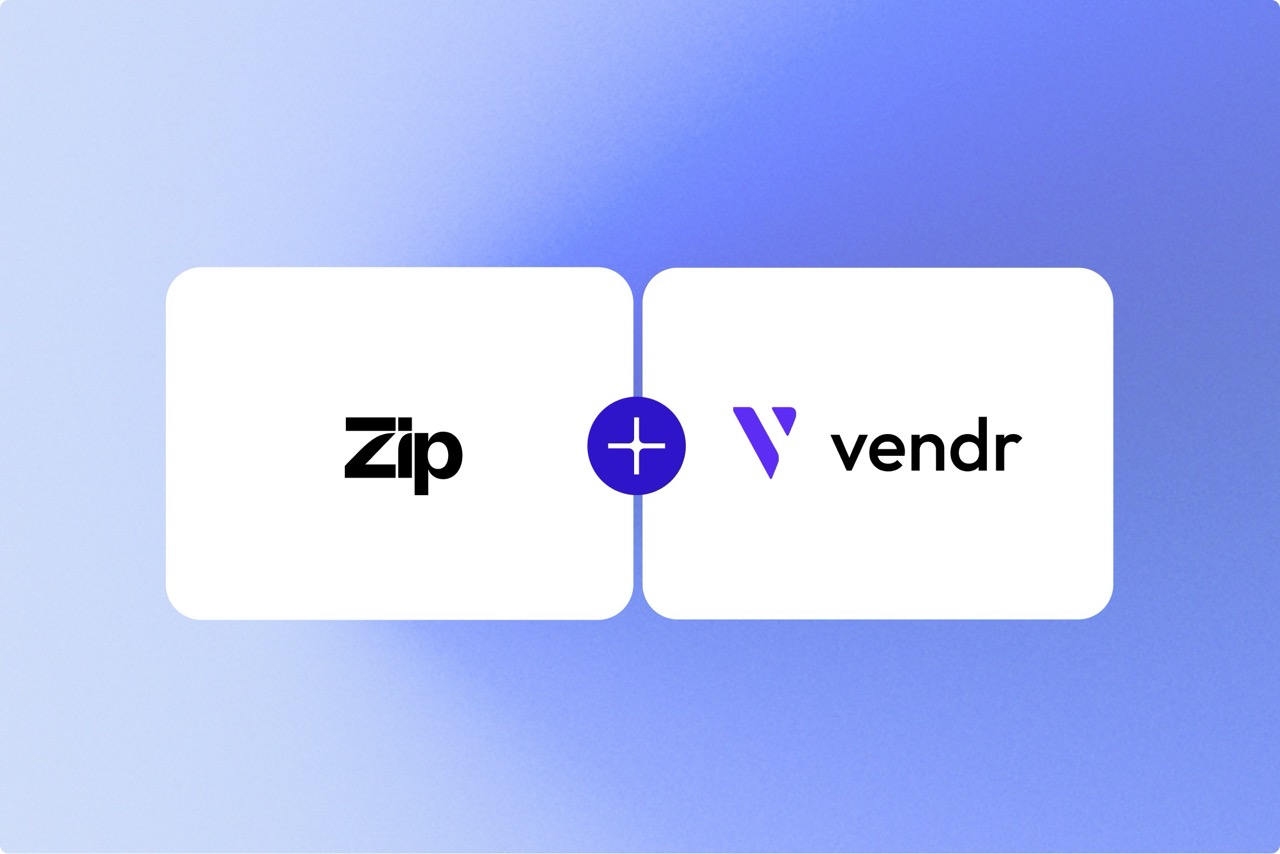Five best practices for managing procurement contracts
Learn about the different procurement contracts and discover five best practices to incorporate into your contract creation and management processes.

The culmination of a thorough and detailed sourcing and procurement process is a formal agreement between the buyer and the vendor, known as the procurement contract.
Procurement contracts are legally-binding documents that lay out the terms of the relationship between these two parties, detailing expectations regarding delivery, performance, service, and payment. It’s somewhat of an understatement to say that getting your procurement contract process right is an important priority.
Learn about the different procurement contracts and discover five best practices to incorporate into your contract creation and management processes.
What is a procurement contract?
A procurement contract is an agreement between a buyer and a seller regarding the terms of their relationship.
While the specific details and clauses vary between business relationships, the majority of procurement contracts include the following information:
- The goods or services the vendor will provide, including details such as order quantities (in the case of a service being provided, like outsourced web design, this might be called the scope of work)
- Timelines and deadlines for things like product delivery or software implementation
- Pricing details, including volume discounts, overage charges, and one-off fees
- Payment terms, such as invoice due date and payment method (credit card, direct debit, etc.)
- Processes and communication channels for reviewing and approving the deliveries
- The term of the agreement, including processes for renewal and termination
- Monitoring and performance control guidelines, including vendor KPIs and requirements for supplier relationship review meetings
- Each party’s rights and responsibilities with regard to dispute resolution
The overarching purpose of a procurement contract is to provide security and protection for both the buyer and the seller so each understands clearly what is expected of them and what they can expect from the other party.
It also acts as a legally binding reference point should the buyer and supplier get into a dispute.
{{cta1}}
Different types of procurement contracts
Procurement contracts fall into one of three categories, which essentially describe how to calculate the cost of the final agreement.
Fixed-price contracts
The fixed-price contract—also known as a lump sum contract—is the most common of the three procurement contract types.
This style of agreement details exactly what the exchanged goods or services will cost. For instance, a contract with your CRM provider stipulates a cost of $19 per user per month.
There are three types of fixed-price contracts
- Firm fixed-price (FFP): The price is fixed, with no additional charges
- Fixed-price & incentive fee (FPIF): Buyers pay an incentive fee if the supplier exceeds expectations
- Fixed pricing with economic price adjustment (FPEPA): The vendor can adjust the final price, if the costs incurred differ significantly from the budget due to economic changes
Cost-reimbursable contracts
Cost-reimbursable contracts are more common in the context of a singular project, like when hiring a marketing agency to build your company a new website.
The marketing agency bears any upfront costs involved in the project (such as employee wages and purchasing website plugin subscriptions on your behalf). You then reimburse them for these costs at the end of the project.
The contract also outlines an additional charge representing the supplier’s profit margin. This charge differs based on the contract type.
- Cost plus fixed fee (CPFF): The vendor charges a fixed price on top of the costs
- Cost plus incentive fee (CPIF): The vendor charges a percentage on top of the costs
- Cost plus award fee (CPAF): The buyer pays a discretionary amount on top of the costs (i.e., it's up to them what to pay)
Time-and-materials contracts
A time-and-materials contract is similar to a cost-reimbursable agreement, except that the buyer doesn’t see the actual costs.
It outlines an hourly rate for labor (usually with a cap to prevent the budget from blowing up). It also stipulates that materials used to complete the project are charged at cost plus a given percentage.
{{cta1}}
Best practices for procurement contracts
1. Use contract templates to make procurement more efficient
While each procurement contract differs in the specific terms it includes, they all follow a fairly similar structure.
For instance, each contract you create includes details about deliverables, payment, termination, and dispute resolution.
Often, these contract terms are identical across agreements of the same type. For example, you might pay all your software subscriptions monthly by credit card.
These similarities open up the possibility of using templates for purchasing contracts.
Contract templates make the SaaS purchasing process faster, an important goal for procurement leaders, as multiple layers of risk analysis and vendor vetting make this a cumbersome undertaking.
They also create consistency across agreements and ensure that no new contracts miss out on vital information, like SaaS renewal processes.
2. Ensure performance expectations are clearly communicated
Strong procurement contracts go beyond “X will deliver Y” and precisely detail what constitutes appropriate supplier performance.
For instance, a contract for a new customer database should include specifications regarding
- Software uptime minimums (e.g., 99.5% uptime across any given month)
- Customer support level expectations (e.g., all tickets responded to within 8 hours)
- Data security requirements (e.g., specifying a particular kind or level of data encryption)
Be as specific as possible when defining vendor expectations and use numeric benchmarks to minimize subjectivity in interpretation.
3. Define how you’ll track and report on contract compliance
Equally as important as outlining the terms of your agreement is defining how you’ll monitor and report on compliance.
You might assign some duties to the vendor. For example, it's common for software suppliers to regularly update you on uptime percentages, assuming this is a clause in your contract.
Others, such as order defect rate—the percentage of items ordered from a supplier that arrive broken or faulty—you’ll likely track in-house.
Design a process for tracking contract compliance in your vendor management system (learn more about those here). Be sure to communicate your intentions to the vendor so everyone is on the same page from the outset regarding compliance monitoring.
4. Detail conditions for termination and dispute resolution
When drafting a new vendor contract, it's natural to think only of the myriad benefits the new relationship brings and ignore the possibility of the partnership turning sour.
But not every vendor relationship lasts forever.
Some may be intentionally short-term, such as when signing up for a one-year subscription for a sales CRM while IT builds a custom system.
Others end due to unexpected circumstances, such as the vendor failing to meet the contract requirements, your business changing track and no longer needing that software tool or a new competitor with more favorable pricing entering the market. The contract should specify termination conditions and procedures for both parties.
It should also include a section on dispute resolution, which discusses the steps either party must take if something goes wrong and you disagree with what the contract says to do about it.
Conditions are particularly important when dealing with international vendors, as corporate law differs from country to country. You need to agree on which jurisdiction to resolve the dispute in if it needs formal mediation.
5. Create a contract management system
If you’re just getting started with procurement contracts, it might be tempting to assume you can easily manage them in a desktop folder or Google Drive.
Most companies have hundreds or even thousands of contracts in place at any one time. Even if you’re not there now, you will get to a scale where a more robust solution is in order.
Save yourself the headache by getting started with a contract management system early. Vendr's contract management tool centralizes storage, organization, and tracking of contracts with features for a calendar view of renewals, contract details, and cost consolidation—for both SaaS and non-SaaS products.
These specialized software tools act as a central repository for contract documents and include helpful contract management features like renewal reminders and supplier compliance reports.
Learn more about what’s involved in procurement contract management in our guide: Contract management: Process, stages, & examples.
Managing procurement contracts in Vendr
The most effective procurement teams don’t just complete contracts—they manage the entire contract lifecycle in a supplier management system.
Vendr is the SaaS buying platform that helps procurement professionals manage all software contract management processes with helpful features like
- Approval workflow automation to ensure contracts are signed off internally without delay
- Support from a team of Saas buying experts to assist you in contract negotiations
- Price benchmarking for the largest data set of SaaS buying transactions to reduce costs and help you secure the best price
- Real-time insights into vendor performance, allowing you to manage contract compliance with ease
Find out how much you could save on SaaS spending with our free cost savings analysis.
{{cta1}}

 WalkMe
WalkMe











